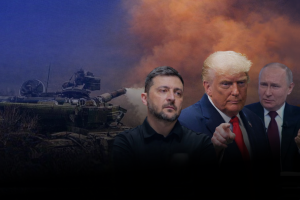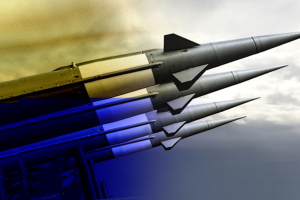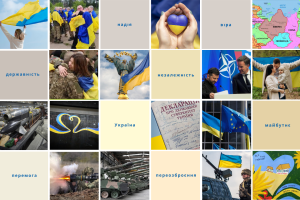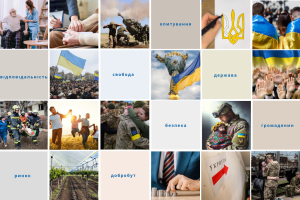Results-2022: Under the blue-yellow flag of freedom!
The results of the survey in the macro-regions of Ukraine, conducted by the Ilko Kucheriv Foundation «Democratic Initiatives» together with the sociological service of the Razumkov Center with the support of the MATRA program from December 13 to 21, 2022. Some questions were financed by the program Documenting Ukraine, conducted by the Institute for Human Sciences, Vienna (IWM)
The face-to-face survey was conducted in Vinnytsia, Volyn, Dnipropetrovsk, Zhytomyr, Zakarpattia, Zaporizhzhya, Ivano-Frankivsk, Kyiv, Kirovohrad, Lviv, Mykolaiv, Odesa, Poltava, Rivne, Sumy, Ternopil, Kharkiv, Kherson, Khmelnytsky, Cherkasy, Chernihiv, Chernivtsi regions and the city of Kyiv (in the Zaporizhia, Mykolaiv, Kharkiv and Kherson regions – only in those territories controlled by the government of Ukraine and where hostilities are not taking place).
The survey was conducted using stratified multistage sampling using random selection at the first stages of sample formation and the quota method of selecting respondents at the final stage (when respondents were selected according to gender and age quotas). The structure of the sample population reproduces the demographic structure of the adult population of the territories where the survey was conducted, as of the beginning of 2022 (by age, sex, type of settlement).
2018 respondents over the age of 18 were surveyed. The theoretical sampling error does not exceed 2.3%.
At the same time, additional systematic deviations of the sample may be caused by the consequences of Russian aggression, in particular, the forced evacuation of millions of citizens.
Composition of macro-regions:
• West – Volyn, Zakarpattia, Ivano-Frankivsk, Lviv, Rivne, Ternopil, Chernivtsi regions;
• Center – Vinnytsia, Zhytomyr, Kyiv, Kirovohrad, Poltava, Sumy, Khmelnytsky, Cherkasy, Chernihiv regions, as well as the city of Kyiv;
• South – Mykolaiv, Kherson and Odesa regions;
• East – Dnipropetrovsk, Zaporizhzhya, Kharkiv regions.
What made 2022 memorable: the main events of the year
- The main event of 2022 for 79% of Ukrainians was the beginning of a full-scale war in the country. For the vast majority of respondents (38%), the war in Ukraine also became the main world event of the year. Another 9% of respondents called the main political event in the world the fact that other countries rallied to help Ukraine, supported our country in this difficult time.
- In 2022, 30% of Ukrainians were most inspired and motivated to survive this difficult year by their relatives and loved ones. For 14%, the main role model of indomitability was the Armed Forces of Ukraine. 11% of citizens were inspired by the hope of Ukraine’s victory in the war. The same number of respondents (11%) reported that they were forced to live this year alone with problems and difficulties.
- As in August, at the end of 2022, Ukrainians leave with hope for a better future for themselves (54%) and the future of the country (60%). Thinking about their future, Ukrainians most often felt, in addition to hope, optimism (36%) and anxiety (33%). At the same time, Ukrainians look to the future of the state mainly with optimism (40%) and confidence (27%).
- Compared to August, thinking about the future of the country, Ukrainians began to feel less hopeful (-5%), but confidence increased (+3%), anxiety (-7%) and fear (-4%) significantly decreased.
- The absolute majority (74%) of the population of Ukraine supports the decision of the President of Ukraine to impose sanctions on the higher clergy of the Ukrainian Orthodox Church (Moscow Patriarchate). 54% of them unquestioningly support this decision. 12% of Ukrainians oppose it and another 14% have not yet decided on their position on this issue.
- The smallest support for the introduction of sanctions against the higher clergy of the UOC MP is maintained among the residents of the South (only 34% support this decision) and among the parishioners of the same UOC MP (30%). Among other Christians, in particular Orthodox, and atheists, support for imposing sanctions on the UOC MP is above 60%. Parishioners of OCU show the greatest support for sanctions - 88%.
War and victory
- 93% of Ukrainians believe in the victory of Ukraine in the war. Only 3% of respondents doubted the victory. Compared to August, Ukrainians’ predictions of victory have not changed. The absolute majority of residents of all macro-regions are convinced of Ukraine’s victory, but in the East there are slightly more skeptics (10%) compared to others.
- Among those who believe in the victory of Ukraine, 39% believe that this victory will come before the summer of 2023. 22% bet on victory in 1-2 years, and another 20% believe that victory can be achieved in the coming months.
- The absolute majority (54%) of Ukrainians see victory in the expulsion of Russian troops from the entire territory of Ukraine and restoration of borders as of January 2014. Another 22% believe that this cannot be stopped and that it is necessary to seek the complete destruction of the Russian army and the disintegration of the Russian Federation from within. 18% of respondents are ready to give up certain parts of the occupied territories in exchange for the cessation of hostilities and consider it a victory. Of these, 8% are ready to cede only Crimea, 6% - territories occupied until February 23, 2022, and 3% - all territories currently occupied by the Russian army.
- 7% of the population of the western and southern regions of Ukraine are ready to end the war, even if the Russian army holds on to the territories occupied after February 24, 2022. Lower demands for the end of the war are also put forward by less wealthy sections of the population, compared to more wealthy ones.
- 62% of respondents believe that the war can finish only in case of victory. 26% of respondents, on the contrary, are ready to make concessions to Russia if it helps to achieve peace. Compared to October, the share of Ukrainians who consider any concessions by the Russian Federation unacceptable has increased by 4%.
- Residents of the South (35%) and East (39%) demonstrated the greatest willingness to make concessions. 16% of them in the South and 12% in the East believe that for the sake of peace it is worth making any compromises.
- The majority of Ukrainians (60%) believe that peace negotiations with Russia are impossible, even for the sake of saving lives, because Russia does not keep the agreements. 23% share the opinion that in order to preserve the lives of our military, civilians, prisoners and deportees, it is worth negotiating with Russia to end the war. 17% of respondents could not decide on their position on this issue.
- The most important military event of the year for 39% of Ukrainians was the defense of Mariupol. For 37% of respondents, one of the most important events at the front was the liberation of Kherson. Rounding out the top three leaders of the most important military events of the year was the liberation of Chernihiv, Kyiv and Sumy regions, named by 33% of respondents.
Is there an alternative to NATO in the minds of Ukrainians?
- 49% of Ukrainians consider joining NATO as the best option for guaranteeing security for Ukraine. 9% of respondents believe that it will be more reliable to conclude an agreement on strategic defense with several countries with the exception of the USA. At the same time, 7% of respondents believe that an agreement on strategic defense should be concluded exclusively with the United States. 17% of Ukrainians are convinced that the best guarantor of security for Ukraine can only be Ukraine itself, through the development of its own armed forces. 9% continue to support non-aligned status for Ukraine with international security guarantees.
- Evaluating the chances of Ukraine joining NATO, the opinions of Ukrainians were divided. A quarter believes that Ukraine will be able to become a full member of NATO immediately after the victory in the war. The same number of respondents believe that, in addition to victory, Ukraine will still have to implement all necessary reforms. 19% of respondents believe that Ukraine will join NATO even before the end of the war, and 16% of Ukrainians do not really believe that Ukraine will ever join NATO.
- The most widespread skepticism about Ukraine’s accession to NATO among residents of the South: 30% believe that Ukraine's accession to NATO is unlikely, only 5% believe that it can happen even before the end of the war.
- The absolute majority of Ukrainians believe that the country’s military and political leadership should continue the war even if aid from Western countries decreases or stops completely. 15% believe that under such conditions it would be better to try to freeze the conflict, but not to accept the conditions of the Russian Federation. 11% of respondents agreed that in this case the country’s leadership should start negotiations with the Russian Federation and be ready to make concessions in order to achieve peace.
- People who live below the poverty line (20%) and residents of the South (27%) are most willing to support the leadership of Ukraine in trying to reach an agreement with the Russian Federation in the event of the cessation of the supply of weapons or finances from the West.
On the way to European integration
- A record share of Ukrainians support Ukraine's accession to the European Union - 79%. Compared to December 2021, the share of citizens who support Ukraine’s membership in the EU increased by 24%. At the same time, the share of those who oppose the country’s accession to the EU fell by 27% over the course of a year. Joining the European Union is supported by the absolute majority of respondents, regardless of age, macro-region of residence, level of education, or financial status.
- 37% of respondents believe that after Ukraine fulfills all EU requirements, the country will be offered full membership. 23% hope that given the circumstances, EU member states will make concessions and offer Ukraine membership even if it does not fulfill all the necessary conditions. At the same time, 28% of respondents are more pessimistic in their forecasts. They believe that Ukraine will still not become a full member of the EU: it will either be offered an alternative status (16%), or Ukraine will remain forever in the status of a candidate (12%). The greatest skepticism about full membership in the EU remains among citizens living below the poverty line (36%).
- 60% of respondents believe that the Ukrainian government should fulfill all the requirements of European institutions, if it can speed up Ukraine’s accession to the EU. 19% do not agree with this statement, another 21% of respondents could not decide on their position on this issue.
- At the same time, Ukrainians expect from the EU, first of all, steps aimed at: punishing and isolating the Russian Federation for military aggression (35%), supporting the economy of Ukraine (23%), assistance in restoring the energy infrastructure (18%), and support in de-oligarchization and the fight against corruption (13%). Only 3% of respondents believe that the EU should primarily help refugees from Ukraine.
New Year with a smile
- The majority of Ukrainians would choose Chicken Kyiv (43%), Kherson watermelon (38%) and Crimean peaches (32%) for their New Year’’s table. Ukrainians fell out of favor with Belarusian potato pancakes (9%).
- Azov steel (52%) became a symbol of the struggle of the Ukrainian people against Russian aggression. The legendary phrase “Russian warship, go f*** yourself” was behind it only by 2% in this honorary title.
- In their wishes to St. Nicholas for the country, Ukrainians were more unanimous than ever: 43% would ask for the end of the war with the victory of Ukraine, 37% would choose the return of all the soldiers of the defense forces alive and well.
- For themselves, Ukrainians would also like to receive victory (25%) and peace (23%) as a New Year’s gift. Material gifts are not in trend this year.








